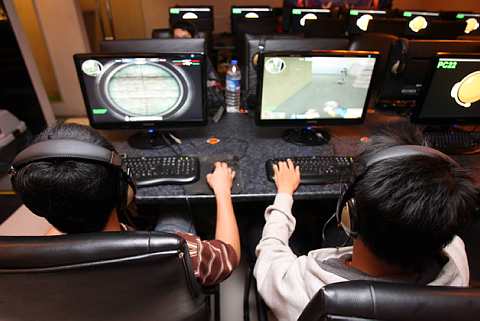GROWING up in Kuala Lumpur, one of the most important parts of my teenage years was the time I spent “hanging out” with my friends.
This was during the heydays of the lepak culture, which was considered such a big problem that there were actually advertising campaigns and signs designed to discourage young people from wasting time hanging out.
Ah, those were the days.
Parents reading this, don’t get me wrong. I’m not encouraging time-wasting or truancy. But as a young person growing up, I always found that it was an incredibly important part of our lives to spend time hanging out with friends.
Back then, for me, these places were Kota Raya and Sungei Wang Plaza.
Of course, today we have the Internet which many youths are connecting to via their mobile devices.
In fact, some of the most common questions I get asked about by young people is, “I’m planning to get a mobile data package along with a new phone. Which plan should I get?”
It used to be that whenever I spot a young person in the corner alone, I wonder if he’s being anti-social, or being shunned by the rest of the group hanging out.
Nowadays, I find even groups of four or five friends hanging out together physically, but they’re all on their mobile phones. That lone guy sitting in the corner by himself and mashing keys on his mobile phone? He’s not lonely. He’s probably hanging out, virtually.
The aggressive marketing into social networking by our local telcos is encouraging this trend. For a while, I was spotting many youth switching over to DiGi thanks to free usage of Facebook Zero – allowing them to access Facebook on their mobile phone wherever they are for free!
We’re still hanging out with our friends, and staying connected these days, but that hangout has moved into virtual space. And while Facebook is the social network du jour for youth right at this moment, Google+’s recent introduction might herald the winds of change.
For one, Google+ brings along with it a brand new service simply called “Hangout.” Niki Cheong has spent a whole article talking about this last week in this column, so I’ll just recap quickly.
You start a group video chat in a “virtual space.” You can share it with only with your friends, or you can share it to public. And anyone that you’ve shared your hangout with will see a message saying, “David Lian is hanging out” with a big blue button they can click to join. Friends can drop-in to hangout with you and drop out when they like. Other friends can then drop in too, and the experience is sort of like friends sitting around McDonald’s and chatting with each other.
For many years now, I’ve had this vision that the way we’d hangout with each other would change. In the years I spent overseas, I would be on ICQPhone (now defunct) for two hours a day talking with my then-girlfriend (now wife).
Soon, as our pattern of life changes, I can see kids rushing home from school only to park themselves right in front of the computer to hangout with their friends from school.
But what’s changing is also the things we do together whilst hanging out. Another piece of youth culture that’s fast-changing is the cyber-cafe culture.
I remember skipping tuition back in the day to join my friends for a round of Command And Conquer: Red Alert at a nearby cyber-cafe, for an exhorbitant RM6 per hour. Prices have come down since and youths are now playing Defense Of The Ancients and Left 4 Dead 2, but mostly from home.
New gaming networks like Steam (www.steampowered.com) allow you to play your favourite games at home, while connected to your friends all the time.
Even midway through a game, while playing totally different games, you can pause and say “Hi” to your friend who’s just signed in.
Steam acts like sort of a social network for gamers, where it’s possible to see which games your friends own, have played recently, start chatrooms and win achievements.
XBOXLive and PlayStation Network provide the same functionalities on their respective consoles, and social hangout has suddenly become this virtual space in front of your computer or console where you participate in playing games together with your friends.
Still, I treasure actually hanging out with people in a physical space, and more and more location-based services are popping up to make our hanging out time both a mesh of the physical and virtual. Thanks to apps like Foursquare, meeting friends can a “serendipitous” occurrence. You see where your friends are, and can easily setup meetings with the people who are near you.
But the largely overlooked dark horse in this space in my opinion are group buying sites like Groupon (www.groupon.my) and MilkADeal (www.milkadeal.com).
Wait, what does group buying have to do with hanging out, you ask? Well, if you check out some of these deals, you’ll see that they are largely about things people do together (like 50% off a LaserTag session or 66% off a meal for two), and offer a wide variety of experiences.
In many ways, this actually contributes a change in the way we hangout. Rather than planning a day to aimlessly walk around Kota Raya (who does that anymore?), we’ll be planning to go para-gliding together or head off to Cameron Highlands for a day or two.
Technology proliferation has changed how we’re interacting, and hanging around with friends. I, for one, think it’s made our “hanging out” time much more efficient – where we’re doing things together rather than whiling time away.
Plus, who can argue with 50% off a lambshank dinner?
Hang out with David Lian on Google+. Follow him on Twitter at http://twitter.com/davidlian.


Tell us what you think!